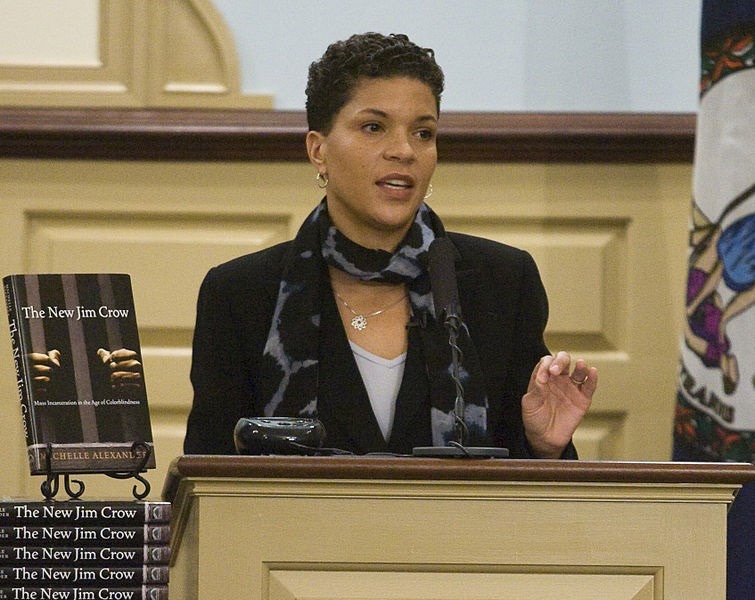
The Ford Foundation yesterday announced two new additions to its staff and fellows. In no uncertain terms, they reflect the foundation’s new focus on the eradication of inequality and the promotion of social justice.
It’s nearly impossible to have a conversation about race and criminal justice lately without someone citing Michelle Alexander’s The New Jim Crow: Mass Incarceration in the Age of Colorblindness. The Ford Foundation has announced that the renowned legal scholar who has devoted much of her career to issues of racial justice would join the foundation as a senior fellow, contributing to the foundation’s work on democracy, rights, and justice. She has most recently, with her best-selling book, been associated with the emerging national movement to end mass incarceration.
For a sense of the power of her work, watch this video:
<iframe width=”560″ height=”315″ src=”https://www.youtube.com/embed/g9OAu_9NBd8″ frameborder=”0″ allowfullscreen></iframe>
Alexander will continue her work on a new book to be called Let My People Go, which will discuss what a truly transformative human rights movement requires of us.
Sign up for our free newsletters
Subscribe to NPQ's newsletters to have our top stories delivered directly to your inbox.
By signing up, you agree to our privacy policy and terms of use, and to receive messages from NPQ and our partners.
“I’m thrilled to join the Ford Foundation as a senior fellow and grateful not only for their interest in my writing and work, but also for their commitment to supporting—as best they can—the emerging human rights movement that aims to transform the meaning of race and justice in America,” said Michelle Alexander.
Additionally the Foundation today announced celebrated poet Elizabeth Alexander (no relation to Michelle) as the new director of its Creativity and Free Expression program, where she will guide the foundation’s grantmaking in arts, media, and culture. Among many other accomplishments, she read one of her poems at Barack Obama’s first presidential inauguration, becoming only the fourth poet to do so.
In a statement, Ford said that as it shifts its overall focus to addressing inequality, Elizabeth Alexander will guide the foundation’s efforts to “examine how cultural narratives impact and shape social movements, and how media and the arts, including film and visual storytelling, can contribute to a fairer and more just society.” By way of response, she offered:
“As a working artist as well as someone who studies the historical impact of the arts, I see how art is often what carries forth voices, struggles, and visions that might otherwise go unheard. In my work building poetry communities and African American studies, I have seen what occurs when more space is created for artists, journalists, thinkers, and other creative makers to do what they uniquely can do. The will to beauty and truth is fundamentally human, and as a teacher, artist, and community builder attentive to the lessons of history, I have always been guided by that belief. As individuals and in society, we are impoverished without the visions that various forms of art and media offer us. Art and expression that are free from constraint help us imagine beyond everyday constrictions and envision possibility. I am truly honored to be joining the community at the Ford Foundation at this moment of dynamic, visionary change bolstered by long-standing, steadfast commitment to the unique power of art and culture to illuminate who we are, individually and to each other.”
—Ruth McCambridge











